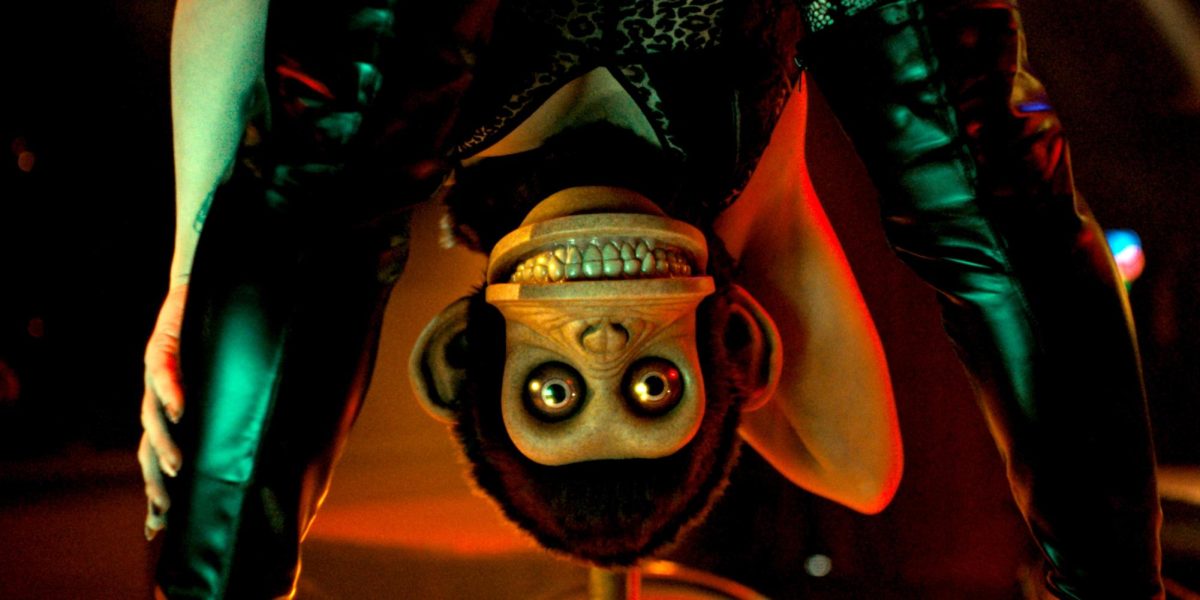Purely in concept, the visual depiction of an academic researching histories of racism, segregation and unbalanced power dynamics while writing a book should only be able to evoke snoring in an audience. But writer/director Ava DuVernay’s film, “Origin,” has managed to transcend traditional filmmaking structure, melding fiction, documentary, history and surrealism into a work that not only leaves a profound impact on its viewers, but builds a sound academic thesis in the process.
Released across the country following a slow rollout and going wide Jan. 19, the film is based on the non-fiction sociology book “Caste: The Origin of Our Discontents” by Isabel Wilkerson. “Origin” takes a very non-traditional method of adaptation, instead deciding to depict the process Wilkerson took to write the book, as well as the personal and career challenges that presented themselves during and leading up to her developing the central idea of the book — that while racism and other types of bigotry exist and are baked into our legal and societal systems, they have stemmed from the existence and perpetuation of caste systems and in turn, they are all intertwined and connected.
Exploring the expanse of these structures is no small task. DuVernay and company weave a complex web, with multiple stories taking place across the globe and through the time stream. In the book and, naturally, in the film, Isabel Wilkerson (Aunjanue Ellis-Taylor) explores the global caste systems by pointing out four examples in particular. The use of antisemitism by Nazi Germany post WWI through The Holocaust, the murder of Trayvon Martin by George Zimmerman in 2012, the subjugation of the Dalits (or “untouchables”) in the caste system of India and the segregation of Black people in the Jim Crow south.
Throughout the film, DuVernay draws the connections out of these seemingly discrete systems of oppression, showing the parallels of each example and how one system can learn from another to better instill superiority of one “desirable” group and the inferiority of another. As Isabel travels across the world, immersing herself in these systems of domination and subjugation, she is grounded most by her family. Her husband, Brett (Jon Bernthal), her mother (Emily Yancy) and her cousin (Niecy Nash) all represent different perspectives and push Isabel in new directions to find her voice to tell the world what she’s found.
While the film not only tackles Isabel’s personal journey while researching and writing, it also attempts to outline much of the book’s central ideas. Tackling the interconnections between the Nazi tactics leading up to and during the Holocaust and the subjugation and enslavement of kidnapped Black people who were brought to U.S. Weaving a connective tissue between these two events, DuVernay, along with editor Spencer Averick, created an easy–to–follow line from the captains of ships on the transatlantic slave trade and the SS officers of Weimar, Germany. And this is applicable to the entire film.
Of course, “Origin” is asking more of its audience than most other wide release features, presenting a complex and hard to swallow narrative, but it shows a clear effort in both the real Wilkerson’s writing, and DuVernay’s, to make this film not only legible but accessible to a wide audience. Some of these efforts come across far more trite than others, however.
Those that work include scenes of the cinematic Wilkerson connecting with Dalit professors and coming to understand their history and how they have long believed their plight is connected to others around the world, creating a grand sense of interwoven history. The professor at the center of this revelation (portrayed by the real life professor Suraj Yengde) describes a global caste system in front of Wilkerson and the audience’s eyes while remaining in an intimate scene between the two subjects.
But others opt for a much less subtle approach, including one in which Wilkerson calls a plumber to take care of a leak in her house, only to be greeted with Dave (Nick Offerman), standing in the doorway wearing a “Make America Great Again” hat. The scene opts out of the obvious conversation and potential dispute between two people with such opposite views and ends only further humanizing the type of man that Wilkerson and other characters themselves find to be responsible for much of the modern day caste system.
While this allows for more of a break from the daunting nature of many portions of the film, in the end, it does not serve characters and the plot, but instead, a potential section of the audience — a section that is not known for being particularly kind and understanding to any narrative that challenges their beliefs.
There are only so many words to describe a film so expansive and experimental in its approach. “Origin”’s monumental achievement in blending its non-fiction elements with fictionalized re-enactments of history and almost surrealist emotional core makes for one of the most transcendent cinematic experiences of the decade thus far. Whether or not the thesis of the film has basis or rings true to any one particular viewer, DuVernay’s efforts to bring such an audacious work to the big screen can only be described as awe-inspiring.




















